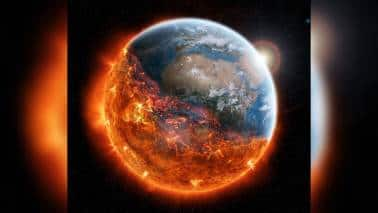
BUSINESS
Climate: Australia hoped to dodge wildfires. El Niño has other plans
In Australia, the 1983, 2003, 2007, 2010 and 2015 fire seasons, some of the most damaging in the country’s history, all occurred during El Niño. With Australia being one of the largest fossil fuel exporters, it cannot really call itself a victim, and is a significant contributor to global warming

BUSINESS
Energy: Timing your power usage better could help save the planet
Excess energy generation is increasingly becoming a problem. Households should be encouraged to run appliances and charge batteries when demand from the grid is low and switch off when net demand surges. This ought to be relatively straightforward in a world of smart meters and phone apps. But regulation and retail pricing are lagging even as consumers are building a new energy world

BUSINESS
Environment: Your coffee cup needs a climate rating, too
As the world’s production of packaging waste rises to developed-country levels of about 200 kilograms per person, governments are going to have to play a bigger role in helping people make sense of this mess
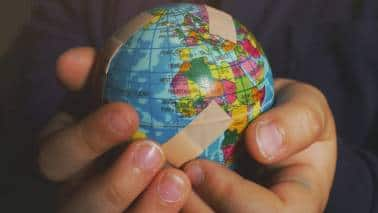
BUSINESS
India's climate ambitions are slipping
Renewable capacity installed in January through May was just 4.8 GW, perhaps the weakest increase since 2020. Intractable factors like high global interest rates raising the cost of financing energy infrastructure and chaotic land ownership system haven't helped. But India should review its planned 40 percent import tax on solar modules

BUSINESS
China's mine disasters threaten its energy security
In its hurry to extract coal and meet tonnage targets, China is losing an opportunity to tap the massive stores of methane that are escaping into the atmosphere from coal mines. This would go towards meeting China's fuel needs, cut emissions and make mines safer for workers
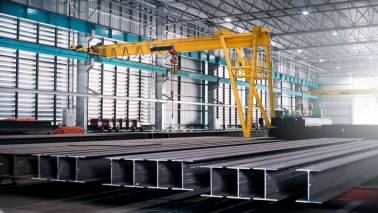
ENVIRONMENT
Climate: The steel mills that built the world face decline
Cleaner electric-arc furnaces are replacing coal-dependent blast furnaces at a fast clip in steelmaking: From 67 percent in March 2022, blast furnace share in production slipped to 57 percent this March. Steelmaking, accounting for 7 percent of global emissions, is also looking at zero-carbon hydrogen in EAFs for producing "green" steel
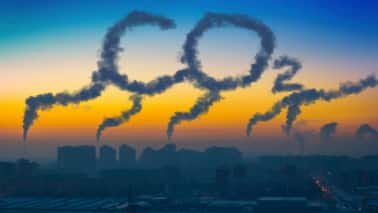
WORLD
Emissions: How China’s downturn could save the world
Since it joined the WTO in 2001 and became the world’s factory, China has contributed nearly two-thirds of the growth in carbon pollution globally. As China reorients itself towards more productive activities, the country has an opportunity to reduce its energy intensity
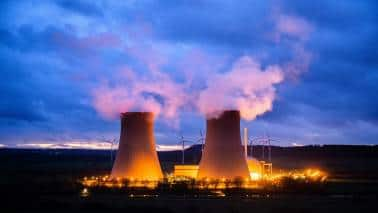
BUSINESS
Clean Energy: Fukushima has a lesson for the nuclear renaissance
The extensive safety protocols that the atomic power industry has built over the past 60 years aren’t just cosmetic. People who are serious about giving atomic energy a role in decarbonising power grids need to accept this and work with public and expert opinion, rather than seek to dismiss it.

BUSINESS
The ups and downs of South Africa's energy transition has lessons for everyone
The world can decarbonise at a faster pace if governments get out of the way. South Africa's solar rooftop panel capacity rose from 983 MW in March 2022 to 4.74 GW last month with more coming. But an ill-conceived Make In South Africa policy could stall the benefits of cheaper Chinese solar panels

BUSINESS
Indonesia's $20 billion plan to break its coal habit is failing
Its coal reserves are vast and cheap, making it the biggest exporter. Low wind speeds and cloudy skies make wind and solar energy inefficient. Meanwhile, politics ensures coal is subsidised and solar penalised. $2.42 trillion will be needed to fund Indonesia’s energy transition up to 2050, not the $20 billion allocated

ENVIRONMENT
Climate: Consumers are seizing the energy transition from big business
Demand-side clean energy investment — equipment used by energy users, such as electric vehicles, heat pumps and sustainable materials — was running ahead of supply-side investments such as solar, wind, nuclear and battery power, hydrogen and carbon capture last year

BUSINESS
Can Tesla’s magic survive without its wizard?
The CFO’s departure raises questions. The automaker has a shallow bench, and Elon Musk has a growing list of distractions
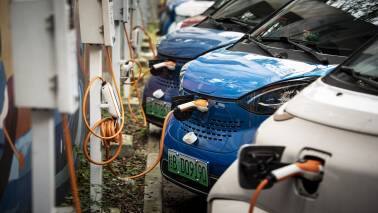
TECHNOLOGY
In China, it’s already cheaper to buy EVs than petrol cars
Battery vehicles have struggled with a higher cost structure that even subsidies and manufacturer losses haven’t helped surmount. That’s finally changing. Seven of the 10 best-selling cars in China in June were EVs. Battery and plug-in hybrid vehicles now account for 37% of sales, trumping Beijing’s 2019 policy for 25% of the market to be electrified by 2025

BUSINESS
Echoes of Australia’s gas ban will ring across four continents
Once touted as a “transition fuel” between denser hydrocarbons and renewables, gas is proving to be a habit as hard to kick as coal and oil. Economies have a choice of whether to build their energy infrastructure around a fickle, finite geological resource or the limitless bounty provided by renewable technologies

BUSINESS
China’s G-20 climate wrecking tactics threaten its global role
At a disastrous G-20 climate ministers’ meeting in Chennai, China’s negotiator reportedly teamed up with Saudi Arabia and refused to discuss a 2025 global emissions target. Retreating from its key role in the 2015 Paris Agreement and its 2020 commitment to net-zero emissions would be disastrous to the world’s climate trajectory and China’s global role
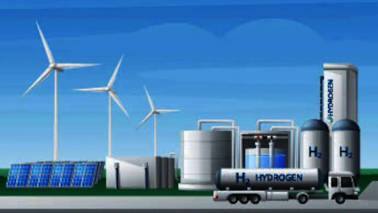
WORLD
Naturally occurring hydrogen could change the world, if we understood it
Given its highly reactive nature, hydrogen is one of the very rare elements on Earth. How to discover, extract, and transport are questions that need answers. But Hyterra, an Australian company exploring for geologic hydrogen in the US, believes it can produce the element for $1 a kilogram — prices at which it might start to compete with natural gas
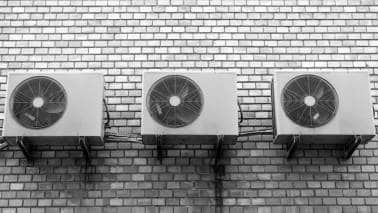
BUSINESS
Time to chill out about air conditioning’s carbon footprint
Under almost every plausible scenario, the climate in 2050 will be suffering more from heating homes than cooling them
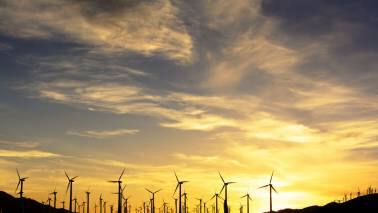
WORLD
Alternative Energy: How offshore wind farms can come out of the doldrums
Many ongoing turbine farm projects were canceled last week due to rising costs and key investors looking at other energy options. If more of the infrastructure funds that are doing well can be persuaded to buy the debt and equity in established offshore projects from developers and banks, that will free up significant funds for new projects

BUSINESS
India’s food security is being choked by climate change
A monsoon that grows more intense as the climate heats up, with warmer air carrying more moisture and dumping it in less predictable ways, leading to more volatile cycles of drought and flooding, is wreaking heavy damage on Indian agriculture. With less farmland per capita than many other countries in the world and a large population to feed, the future looks worrying

BUSINESS
Here’s how the US and China can work together on climate
US must start recognising China as a collaborator, not a competitor. Policymakers in Beijing and Washington, obsessed with national security, are overlooking the huge threat that a warming planet poses to their collective security. With the temperature breaching 50C in California and Xinjiang this week, there’s an opportunity now for both sides to grasp the bigger picture

BUSINESS
Our civilisation was built for a climate that’s vanishing
Weather disasters like those unfolding across the northern hemisphere will affect more and more of us
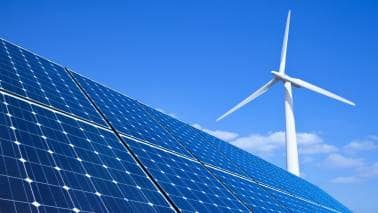
BUSINESS
How China’s renewables boom is fuelling its coal expansion
China is installing 154 gigawatts of solar panels this year, nearly half the 344GW total worldwide. It will also account for more than half of the wind power connected between now and 2030. However, almost every one of the 40GW of coal plants given the go-ahead last year was in China

BUSINESS
The real problem with deep-sea mining is it won’t make money
Fears of ecosystem damage are tendentious. The issue is volatile commodity prices that will make it hard to finance projects
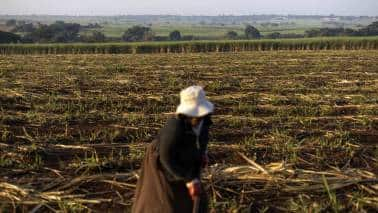
BUSINESS
Climate Finance: The US and China need a Marshall Plan
The energy transition will be built on trillions of dollars of investment. There is progress on the road to assigning capital needed to hit net zero. However, 84% of the $1.6 trillion in clean energy spending last year happened in rich nations and China. If developing economies can’t tap into that finance, they will be left with no options except fossil fuels, poverty, or both











